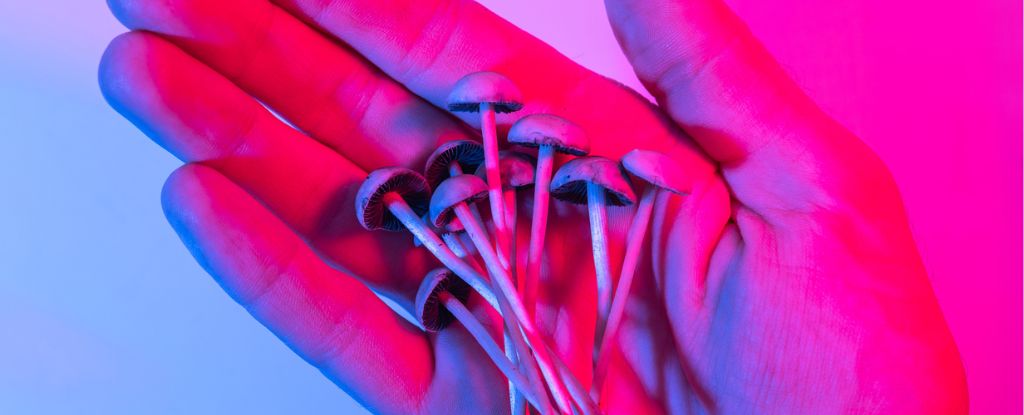Products You May Like
A new era of clinical research on psilocybin mushrooms (aka ‘magic mushrooms’) has emboldened some scientists to share their own life-changing experiences with psychedelics.
A recent case study describes a young 35-year-old male researcher in the United States, who claims to distinguish red and green colors better after taking psychedelics.
Following his ingestion of magic mushrooms, which contain the psychoactive substance psilocybin, the subject says his mild color blindness improved over the course of a week according to a common self-administered test.
The case study was written by his colleagues, a team of neurologists and behavioral psychologists, but the data was collected at the initiative of the subject himself.
After self-administering a color blindness test, known as the Ishihara Test, the subject took five grams of dried mushrooms, which is considered a relatively high dose of psilocybin. He then took the Ishihara Test periodically over the next four months.
This test is composed of a series of flashcards that each feature a number made up of green dots, embedded in a background of red dots, or the reverse color arrangement.
Color blindness usually stems from a genetic defect on the X chromosome, and it causes a loss in the eye’s pigments that distinguish certain colors.
For someone with red-green color blindness, the opsin pigments are abnormal, which leads red and green to bleed together, obscuring the numbers found in the Ishihara test.
Before taking mushrooms, the subject of the case study scored 14 on the Ishihara test, which indicates mild red-green blindness. Twelve hours after the trip, his score had only improved by one point.
The following day, however, the subject scored 18, which is past the threshold of ‘normal color vision’. By day 8, his score had climbed to a peak of 19.
Four months after that initial dose, his score had fallen slightly but was still very much in the range of normal vision. That said, the authors admit, the subject did take other hallucinogens after day 16, which convolutes the results.
The methodology of the case study is hardly very rigorous, but that was not really the point. The subject had noticed in the past that his perceptions of red and green improved for months following the use of psychedelics. And yet since these substances are listed as schedule 1 drugs in the US, clinical research is extremely limited.
The subject simply wanted to know whether he could ‘believe’ his eyes. So he put them to the test.
In 2020, researchers at the Global Drug Survey announced they had collected 47 reports of color blindness improving following the ingestion of LSD or psilocybin. They suggested more research on the topic, but none came.
The new case study brings attention to the mystery once again.
The findings suggest magic mushrooms just might improve color perception in those who are color blind. What’s more, those improvements could last for weeks, if not months after ingesting the drug.
Some reports from the global survey claimed the effect could even last years.
A recent post on Reddit shares a particularly extreme albeit short ‘cure’ to color blindness. A person who could only see greyish tones following a severe concussion suddenly claimed to see color again after taking mushrooms.
Four days later, another Reddit post announced that the regained color perception had apparently started to fade.
Without scientific testing, it’s impossible to say how true these reports really are.
It’s fair to be skeptical without more evidence, but what is known is that psilocybin can profoundly alter color perception.
The drug seems to trigger activity in the processing areas of the visual pathway that lie far beyond the eyes. This means that magic mushrooms might trick the mind into seeing colors that the eyes are incapable of sensing themselves.
Understanding more about the drug could help scientists find new ways to improve vision in those with disorders and diseases of the eye.
The study was published in Drug Science, Policy and Law.
